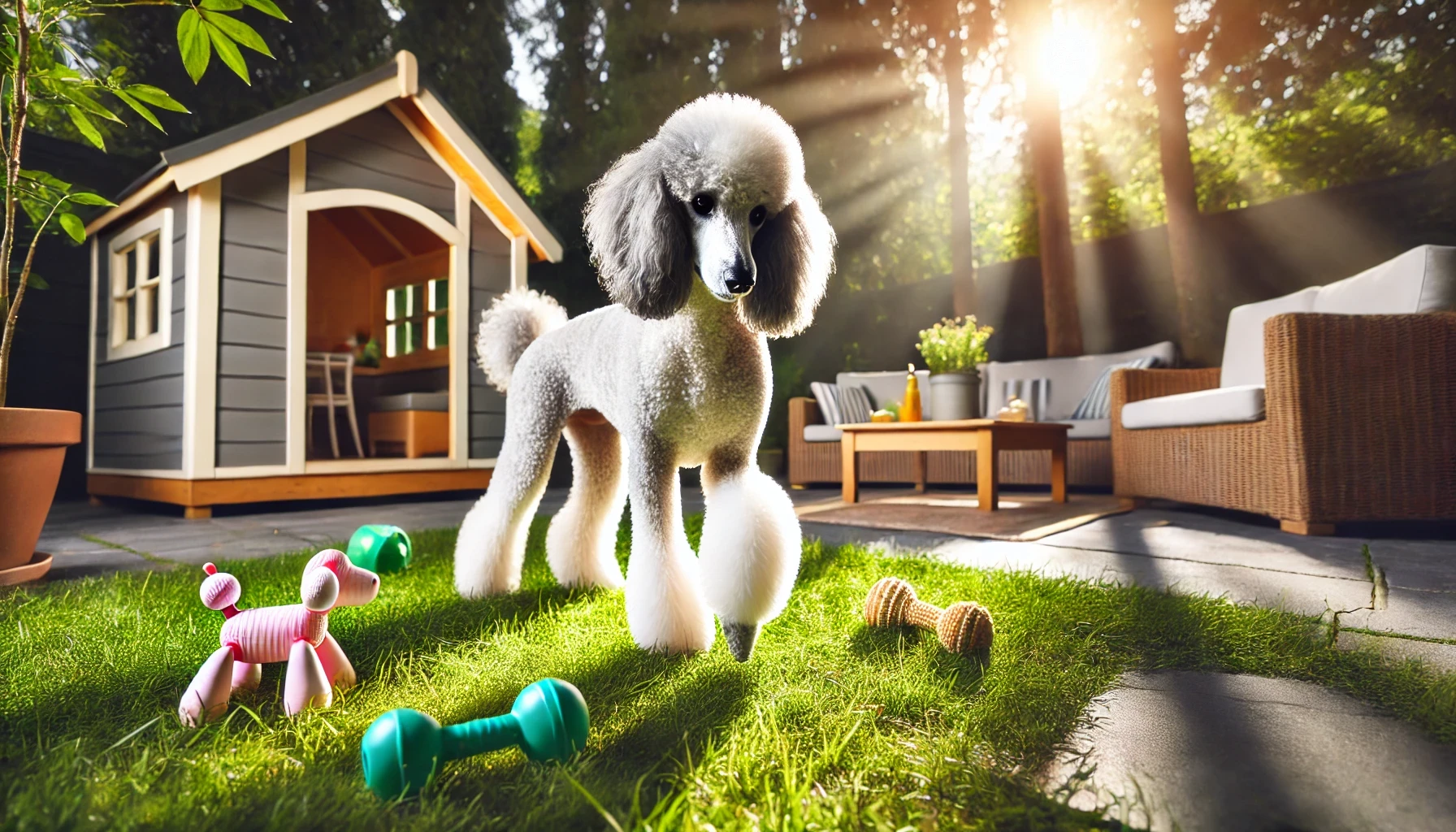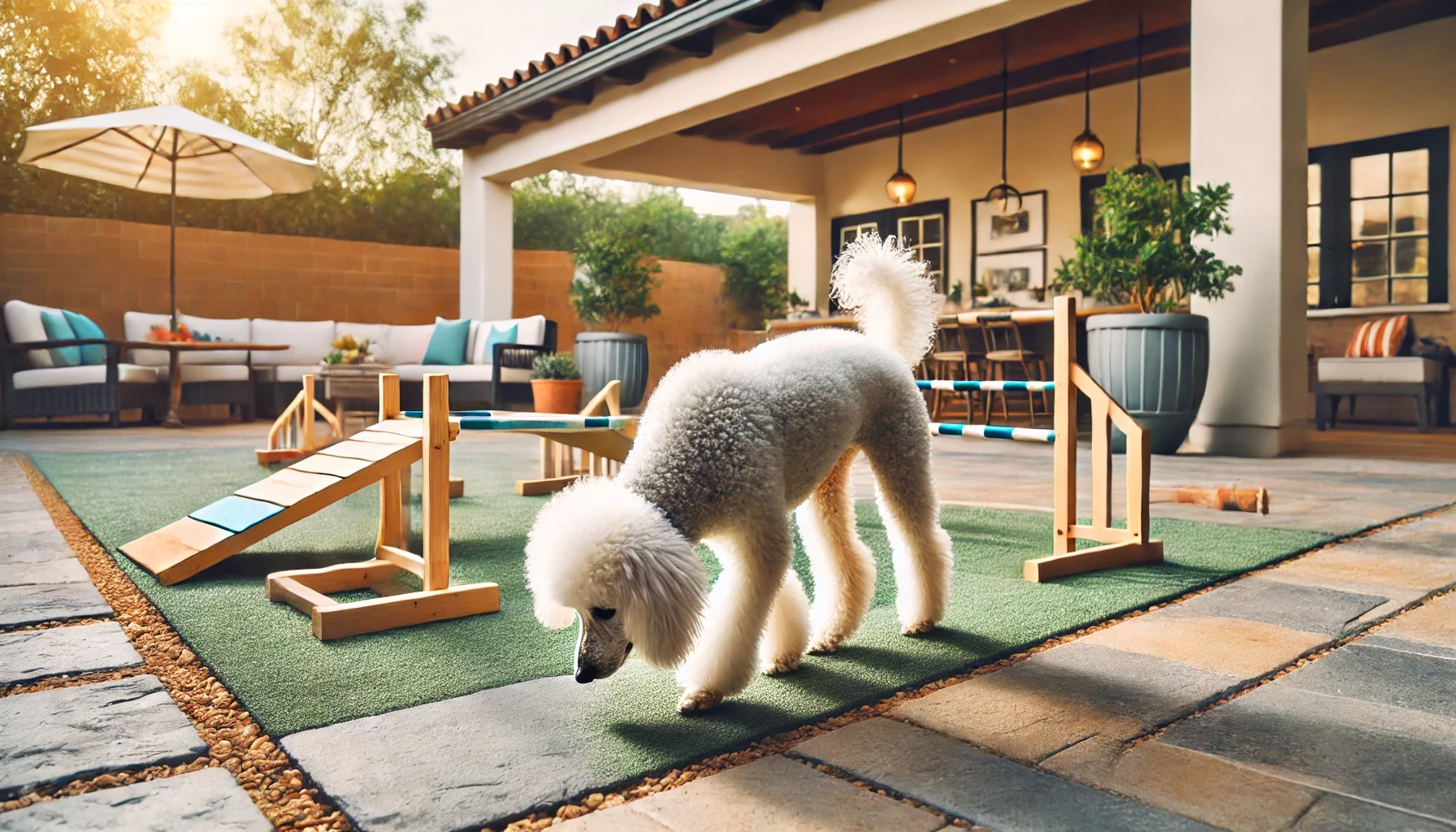On this page
Could a New Home Be Stressful for Your Standard Poodle?
Yes, moving to a new home can be stressful for a 4-year-old Standard Poodle. As a breed known for its intelligence and strong emotional bonds, Standard Poodles are sensitive to changes in their surroundings. They may display signs of stress such as restlessness, loss of appetite, or excessive barking. Helping your dog adjust to their new environment requires patience, structure, and care.
Dietary changes may also play a role during this transition. Stress can impact digestion, so providing easily digestible, high-quality food and incorporating calming supplements like omega-3 fatty acids can support their emotional and physical well-being.
Simplify your Standard Poodle’s transition with Dosty’s expert tools. Download the app now!
Why Is Moving Stressful for Standard Poodles?
Does your Poodle’s breed make them more affected by a move? Yes, their emotional intelligence and attachment to routines make them more sensitive to environmental changes.
Key Reasons for Stress:
Attachment to Familiarity: Poodles thrive on predictability and may struggle with unfamiliar surroundings.
Loss of Scent Cues: Dogs rely heavily on scent for comfort, and new smells can feel overwhelming.
Separation Anxiety: Moving often involves temporary disruptions, such as being apart from their owner or familiar items.
Environmental Sensitivity: Loud noises, unpacking, and new routines can add to their stress.
Dr. Emily Larson explains, “Standard Poodles are creatures of habit, and a sudden change in environment can disrupt their sense of security.”
Steps to Ease the Transition:
Bring familiar items, such as their bed or favorite toys, to the new home.
Gradually introduce them to different areas of the house.
Maintain their previous routine for feeding, walks, and playtime.
What Are the Signs That Your Poodle Is Struggling to Adjust?
Could your dog’s behavior indicate difficulty adapting? Yes, Standard Poodles express stress through specific physical and behavioral signs.
Common Signs of Adjustment Struggles:
Excessive Barking or Whining: A vocal expression of discomfort or fear.
Destructive Behavior: Chewing furniture, digging, or knocking over items.
Changes in Appetite: Eating less or more than usual.
Restlessness: Pacing or inability to settle in one spot.
Clinginess: Following you excessively or refusing to be alone.
Dr. Michael Carter advises, “Identifying early signs of stress allows pet owners to intervene before behaviors escalate.”
How to Respond:
Offer extra attention and reassurance through gentle play or cuddles.
Use calming products like anxiety wraps or pheromone diffusers.
Avoid punishing stress-related behaviors, as it can worsen anxiety.

How Can You Create a Comfortable Space for Your Poodle?
Is it important to set up a dedicated area for your dog? Absolutely, creating a safe and familiar space is crucial for easing their transition.
Steps to Create a Safe Zone:
Designate a Quiet Area: Choose a low-traffic space for their bed and toys.
Include Familiar Items: Bring their blanket, crate, or favorite chew toys.
Limit Noise and Activity: Reduce exposure to loud unpacking noises or visitors initially.
Provide Comfort: Use calming music or white noise to create a soothing atmosphere.
Dr. Laura Bennett explains, “A designated safe space allows your dog to retreat and feel secure as they adjust to their new surroundings.”
Comparison With Other Breeds:
Compared to independent breeds like Huskies, Poodles require more emotional reassurance and a familiar environment.
However, their adaptability makes them quick to settle with proper guidance.
Does Routine Play a Role in Helping Your Poodle Adjust?
Can maintaining a consistent routine help your dog adapt faster? Yes, sticking to familiar schedules gives your Poodle a sense of stability.
Why Routine Matters:
Predictability: Familiar routines reduce anxiety and help your dog feel more in control.
Regular Exercise: Physical activity releases endorphins that counter stress.
Feeding Times: Keeping meal schedules consistent supports digestion and comfort.
Tips for Routine Maintenance:
Match their old routine as closely as possible, including walk times and play sessions.
Avoid introducing too many changes at once.
Gradually incorporate new activities or areas of the house into their routine.
Dr. Rebecca Allen advises, “Consistency is key during transitions. A predictable routine helps dogs understand their new environment more quickly.”

Conclusion: Helping Your Standard Poodle Settle Into a New Home
Adjusting to a new home can be challenging for a 4-year-old Standard Poodle, but with patience, consistency, and the right strategies, it’s manageable. By creating a safe space, maintaining a familiar routine, and addressing stress early, you can help your dog transition smoothly. For persistent issues, consulting a professional ensures your Poodle’s emotional and physical well-being.
Simplify your Poodle’s adjustment process with Dosty’s expert tools and tips. Visit Dosty.co.


